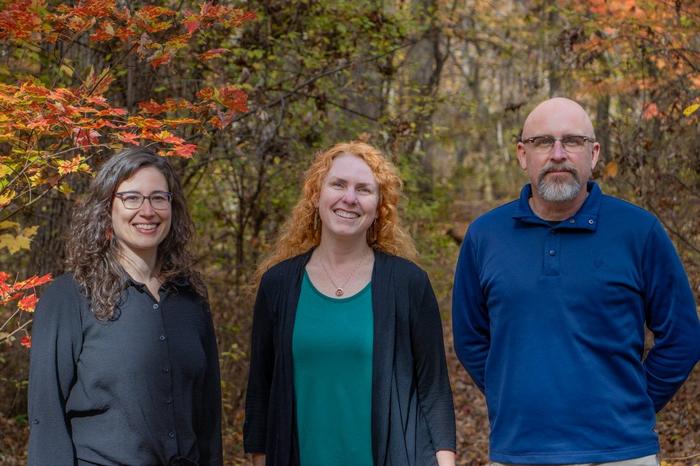Appalachia has long been celebrated for its rich biodiversity and picturesque landscapes. However, what may not be as well-known is the region’s role as a significant source of non-timber forest products (NTFPs) that are gaining traction in the global market. This update covers ongoing research and initiatives focused on cultivating these resources sustainably. It highlights the tremendous economic potential for local communities and the importance of preserving traditional knowledge amid modern demands.
The Appalachian region spans an expansive 205,000 square miles, teeming with over 100 commercially viable species, particularly in a landscape known for its rolling hills and dense forests. Among the prominent species are medicinal plants such as ginseng, black cohosh, and slippery elm. These understory plants are pivotal not only to Appalachia’s ecological health but also serve as critical components of the flourishing nutraceutical market. Unfortunately, the exploitation of these resources often leads to detrimental environmental impacts, including the degradation of native habitats.
There has been a notable surge in consumer demand for various Appalachian products, especially edible items like ramps, which can fetch prices exceeding $20 per pound in urban markets like New York City. While local communities have traditionally relied on wild harvesting, a paradigm shift is occurring towards cultivated approaches known as forest farming. This method involves integrating agriculture with forest management, providing a sustainable alternative that respects ecological integrity while fostering economic growth.
Research spearheaded by John Munsell, a professor in the Department of Forest Resources and Environmental Conservation at Virginia Tech, is at the forefront of this development. Munsell’s focus centers on creating accessible resources and formalizing the supply chain—from cultivation to processing and distribution. His recent grant of $500,000 from the Appalachian Regional Commission marks the beginning of a comprehensive study investigating the economic viability of forest farming practices across the region.
Munsell’s insights underline a critical truth: for a cultivation economy to thrive, communities must have adequate support, resources, and trained personnel. Formalizing forest farming enterprises could catalyze local economies while ensuring environmental sustainability. He emphasizes integrating cultural influences such as tourism and traditional knowledge into the business dynamics. Doing this will not only bolster profitability but also help preserve Appalachia’s rich heritage and natural resources.
Collaboration plays a vital role in this endeavor. Munsell is working alongside Shannon Bell, an environmental sociology professor, who has conducted extensive research with local wild harvesters and buyers. Bell’s investigations have shed light on the inequitable practices within the woodland herbal supply chain. She aspires to find innovative strategies that enable Appalachian communities to retain greater profits from herbal products, potentially transforming the financial landscape of local economics.
A significant outcome of this research is the establishment of a consortium involving eleven universities and nonprofit organizations aimed at enhancing the NTFP sector. This diverse coalition tackles different aspects of the value chain, recognizing that community-driven economic models explore workers’ rights, quality control, and feasible pricing strategies. It is vital to create an infrastructure that prioritizes the welfare of those engaging in these industries, thereby fostering a just economy for all stakeholders.
With the increasing desirability of forest-farmed materials, Munsell and his team advocate for quality over quantity. High-quality, sustainably-sourced goods attract higher prices from companies looking for superior raw materials. This shift aligns perfectly with a broader economic strategy emphasizing local stewardship and community control over natural resources. The attention given to Appalachian herbs and mushrooms can redefine market dynamics while nurturing respect for the environment.
Training the local workforce is another objective of this initiative. Developing skilled labor for processing and maintaining quality standards is imperative as it translates into viable business practices and economic reliability. Nurturing this talent not only bolsters existing efforts but also prepares the community for future market demands. Ultimately, the aim is to lay the groundwork for sustainable economic development that goes beyond merely harvesting raw materials.
Parallel to these efforts, the incorporation of tourism as an educational tool will showcase the unique heritage of the Appalachian region while promoting responsible consumption. This dual strategy enhances community engagement and creates avenues for cultural exchange, further integrating the local economy with global markets. Engaging consumers with the story behind these forest products will cultivate appreciation and support for sustainable practices.
In the struggle to balance financial gain and environmental responsibility, the Appalachian community faces numerous challenges. However, the collective ambition and dedication of local explorers and researchers offer a hopeful narrative. By marrying cultural history with modern economic practices, they are forging pathways that can simultaneously uplift communities while protecting invaluable ecosystems.
The Appalachian model of forest farming promises a positive future, equipped with the resources, education, and collaborative efforts necessary to thrive in an increasingly complex global economy. It is not only imperative to celebrate the natural bounty but to commit actively to its sustainable management. Through this conscious approach, the Appalachian region can become a benchmark for other areas looking to juggle economic development with environmental stewardship.
As Munsell aptly summarizes, harnessing this "green wealth" means leading with stewardship, sincerity, and sustainability. By creating an effective framework for forest farming practices, the Appalachian region stands poised to set a transformative standard for others, proving that thriving economies can coexist with ecological preservation.
Subject of Research: Sustainable Forest Farming Practices in Appalachia
Article Title: Cultivating Appalachia: The Economic Promise of Non-Timber Forest Products
News Publication Date: October 2023
Web References: Virginia Tech, Appalachian Regional Commission
References: Virginia Tech studies, local agricultural reports
Image Credits: Photo by Jasmine Rorrer for Virginia Tech
Keywords: Non-timber forest products, Appalachia, sustainable agriculture, economic development, forest farming, local resources, medicinal plants, community engagement, tourism, quality control, biodiversity, environmental stewardship.




